185 results found for 'Motion'. Prev |1|2|3|4|5|6|7|8 | Next | View 100 per page
Low relevance matches: 33 other results may be of interest to you. Show low relevance matches
Forces and Moving - The way objects move depends on a variety of factors including their size and shape ACSSU117 Year 7 Physical Sciences
Forces and Machines - Change to an object’s motion is caused by unbalanced forces, including Earth’s gravitational attraction, acting on the object ACSSU151 Year 8 Chemical Sciences
Matter and Particles - The properties of the different states of matter can be explained in terms of the motion and arrangement of particles ACSSU229 Year 10 Physical Sciences
Forces and Motion - The motion of objects can be described and predicted using the laws of physics ACSPH060 Year 11 Linear Motion and Waves
Linear motion and force - Uniformly accelerated motion is described in terms of relationships between measurable scalar and vector quantities, including displacement, speed, velocity and acceleration ACSPH061 Year 11 Linear Motion and Waves
Linear motion and force - Representations, including graphs and vectors, and/or equations of motion, can be used qualitatively and quantitatively to describe and predict linear motion ACSPH062 Year 11 Linear Motion and Waves
Linear motion and force - Vertical motion is analysed by assuming the acceleration due to gravity is constant near Earth’s surface ACSPH063 Year 11 Linear Motion and Waves
Linear motion and force - Newton’s Three Laws of Motion describe the relationship between the force or forces acting on an object, modelled as a point mass, and the motion of the object due to the application of the force or forces ACSPH064 Year 11 Linear Motion and Waves
Linear motion and force - Momentum is a property of moving objects; it is conserved in a closed system and may be transferred from one object to another when a force acts over a time interval ACSPH065 Year 11 Linear Motion and Waves
Linear motion and force - Energy is conserved in isolated systems and is transferred from one object to another when a force is applied over a distance; this causes work to be done and changes to kinetic and/or potential energy of objects ACSPH066 Year 11 Linear Motion and Waves
Linear motion and force - Collisions may be elastic and inelastic; kinetic energy is conserved in elastic collisions ACSPH069 Year 11 Linear Motion and Waves
Waves - Waves may be represented by time and displacement wave diagrams and described in terms of relationships between measurable quantities, including period, amplitude, wavelength, frequency and velocity ACSPH072 Year 11 Linear Motion and Waves
Waves - The superposition of waves in a medium may lead to the formation of standing waves and interference phenomena, including standing waves in pipes and on stretched strings ACSPH073 Year 11 Linear Motion and Waves
Waves - A mechanical system resonates when it is driven at one of its natural frequencies of oscillation; energy is transferred efficiently into systems under these conditions ACSPH076 Year 11 Linear Motion and Waves
Waves - A wave model explains a wide range of lightrelated phenomena including reflection, refraction, total internal reflection, dispersion, diffraction and interference; a transverse wave model is required to explain polarisation ACSPH099 Year 12 Gravity and electromagnetism
Gravity and motion - Projectile motion can be analysed quantitatively by treating the horizontal and vertical components of the motion independently ACSPH100 Year 12 Gravity and electromagnetism
Gravity and motion - When an object experiences a net force of constant magnitude perpendicular to its velocity, it will undergo uniform circular motion, including circular motion on a horizontal plane and around a banked track ACSPH067 Year 11 Linear Motion and Waves
Waves - Waves are periodic oscillations that transfer energy from one point to another ACSPH068 Year 11 Linear Motion and Waves
Waves - Longitudinal and transverse waves are distinguished by the relationship between the direction of oscillation relative to the direction of the wave velocity ACSPH070 Year 11 Linear Motion and Waves
Waves - Mechanical waves transfer energy through a medium; mechanical waves may oscillate the medium or oscillate the pressure within the medium ACSPH071 Year 11 Linear Motion and Waves
Waves - The mechanical wave model can be used to explain phenomena related to reflection and refraction ACSPH074 Year 11 Linear Motion and Waves
Waves - Light exhibits many wave properties; however, it cannot be modelled as a mechanical wave because it can travel through a vacuum ACSPH075 Year 11 Linear Motion and Waves
Waves - A ray model of light may be used to describe reflection, refraction and image formation from lenses and mirrors ACSPH077 Year 11 Linear Motion and Waves
Waves - The speed of light is finite and many orders of magnitude greater than the speed of mechanical waves (for example, sound and water waves); its intensity decreases in an inverse square relationship with distance from a point source ACSPH098 Year 12 Gravity and electromagnetism
Gravity and motion - The vector nature of the gravitational force can be used to analyse motion on inclined planes by considering the components of the gravitational force (that is, weight) parallel and perpendicular to the plane
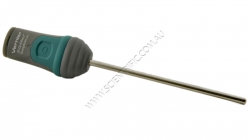

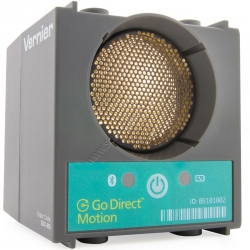

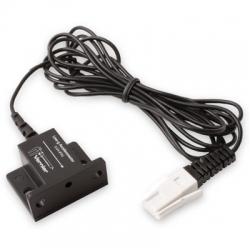
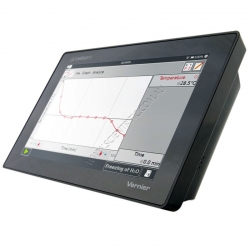


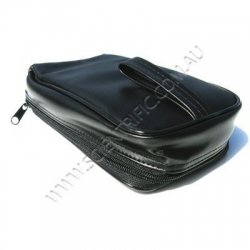
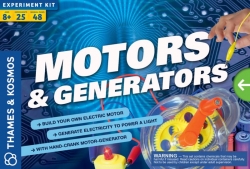
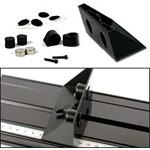

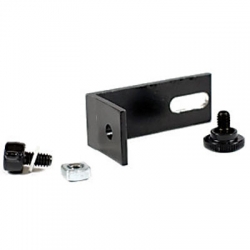
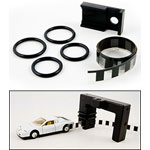
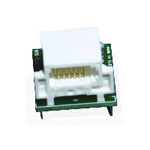
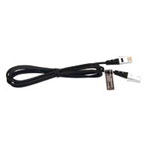
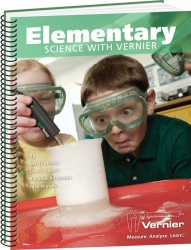

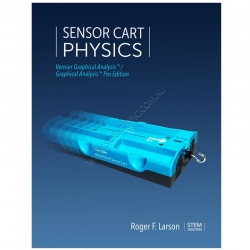
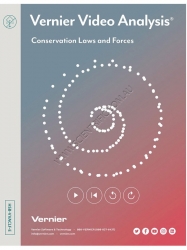
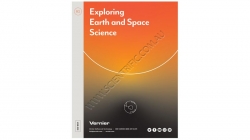
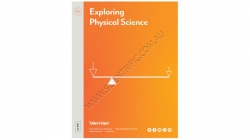
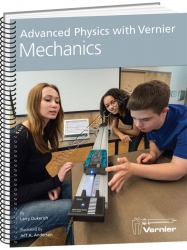

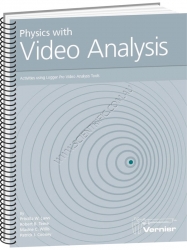
185 results found for 'Motion'. Prev |1|2|3|4|5|6|7|8 | Next | View 100 per page
Low relevance matches: 33 other results may be of interest to you. Show low relevance matches
Curriculum resources related to 'Motion'
ACSSU005 Foundation Physical SciencesForces and Moving - The way objects move depends on a variety of factors including their size and shape ACSSU117 Year 7 Physical Sciences
Forces and Machines - Change to an object’s motion is caused by unbalanced forces, including Earth’s gravitational attraction, acting on the object ACSSU151 Year 8 Chemical Sciences
Matter and Particles - The properties of the different states of matter can be explained in terms of the motion and arrangement of particles ACSSU229 Year 10 Physical Sciences
Forces and Motion - The motion of objects can be described and predicted using the laws of physics ACSPH060 Year 11 Linear Motion and Waves
Linear motion and force - Uniformly accelerated motion is described in terms of relationships between measurable scalar and vector quantities, including displacement, speed, velocity and acceleration ACSPH061 Year 11 Linear Motion and Waves
Linear motion and force - Representations, including graphs and vectors, and/or equations of motion, can be used qualitatively and quantitatively to describe and predict linear motion ACSPH062 Year 11 Linear Motion and Waves
Linear motion and force - Vertical motion is analysed by assuming the acceleration due to gravity is constant near Earth’s surface ACSPH063 Year 11 Linear Motion and Waves
Linear motion and force - Newton’s Three Laws of Motion describe the relationship between the force or forces acting on an object, modelled as a point mass, and the motion of the object due to the application of the force or forces ACSPH064 Year 11 Linear Motion and Waves
Linear motion and force - Momentum is a property of moving objects; it is conserved in a closed system and may be transferred from one object to another when a force acts over a time interval ACSPH065 Year 11 Linear Motion and Waves
Linear motion and force - Energy is conserved in isolated systems and is transferred from one object to another when a force is applied over a distance; this causes work to be done and changes to kinetic and/or potential energy of objects ACSPH066 Year 11 Linear Motion and Waves
Linear motion and force - Collisions may be elastic and inelastic; kinetic energy is conserved in elastic collisions ACSPH069 Year 11 Linear Motion and Waves
Waves - Waves may be represented by time and displacement wave diagrams and described in terms of relationships between measurable quantities, including period, amplitude, wavelength, frequency and velocity ACSPH072 Year 11 Linear Motion and Waves
Waves - The superposition of waves in a medium may lead to the formation of standing waves and interference phenomena, including standing waves in pipes and on stretched strings ACSPH073 Year 11 Linear Motion and Waves
Waves - A mechanical system resonates when it is driven at one of its natural frequencies of oscillation; energy is transferred efficiently into systems under these conditions ACSPH076 Year 11 Linear Motion and Waves
Waves - A wave model explains a wide range of lightrelated phenomena including reflection, refraction, total internal reflection, dispersion, diffraction and interference; a transverse wave model is required to explain polarisation ACSPH099 Year 12 Gravity and electromagnetism
Gravity and motion - Projectile motion can be analysed quantitatively by treating the horizontal and vertical components of the motion independently ACSPH100 Year 12 Gravity and electromagnetism
Gravity and motion - When an object experiences a net force of constant magnitude perpendicular to its velocity, it will undergo uniform circular motion, including circular motion on a horizontal plane and around a banked track ACSPH067 Year 11 Linear Motion and Waves
Waves - Waves are periodic oscillations that transfer energy from one point to another ACSPH068 Year 11 Linear Motion and Waves
Waves - Longitudinal and transverse waves are distinguished by the relationship between the direction of oscillation relative to the direction of the wave velocity ACSPH070 Year 11 Linear Motion and Waves
Waves - Mechanical waves transfer energy through a medium; mechanical waves may oscillate the medium or oscillate the pressure within the medium ACSPH071 Year 11 Linear Motion and Waves
Waves - The mechanical wave model can be used to explain phenomena related to reflection and refraction ACSPH074 Year 11 Linear Motion and Waves
Waves - Light exhibits many wave properties; however, it cannot be modelled as a mechanical wave because it can travel through a vacuum ACSPH075 Year 11 Linear Motion and Waves
Waves - A ray model of light may be used to describe reflection, refraction and image formation from lenses and mirrors ACSPH077 Year 11 Linear Motion and Waves
Waves - The speed of light is finite and many orders of magnitude greater than the speed of mechanical waves (for example, sound and water waves); its intensity decreases in an inverse square relationship with distance from a point source ACSPH098 Year 12 Gravity and electromagnetism
Gravity and motion - The vector nature of the gravitational force can be used to analyse motion on inclined planes by considering the components of the gravitational force (that is, weight) parallel and perpendicular to the plane
Products related to 'Motion'

Vernier Go Direct Exploring Earth and Space Science Package
VERNIER GO DIRECT EXPLORING EARTH AND SPACE SCIENCE PACKAGE
Explore the Earth science topics of weather, soil and water quality with your Years 4-8 students. Collect, share and analyze sensor data with Vernier's free Graphical Analysis software. The GA app facilitates stu...
Order code: GDP-MS-ESS

Vernier Go Direct Exploring Physical Science Package
VERNIER GO DIRECT EXPLORING PHYSICAL SCIENCE PACKAGE
Explore various physical science topics in basic chemistry and physics from matter and energy to motion and forces with your Years 4-8 Middle School students. Collect, share and analyze sensor data with Vernier's free G...
Order code: GDP-MS-PS

Vernier Go Direct Physics Standard Package
VERNIER GO DIRECT PHYSICS STANDARD PACKAGE
Designed for use by a group of 2-4 students, the Vernier Go Direct Physics Standard Package includes:
• GDX-MD Vernier Go Direct Motion Detector
•
Order code: GDP-PHY-DX

Vernier Go Direct Physics Starter Package
VERNIER GO DIRECT PHYSICS STARTER PACKAGE
Designed for use by a group of 2-4 students, the Vernier Go Direct Physics Starter Package includes:
• GDX-MD Vernier Go Direct Motion Detector
•
Order code: GDP-PHY-ST

Vernier Low-g Accelerometer
VERNIER LOW-G ACCELEROMETER
Vernier's most popular accelerometer is the best choice for most acceleration experiments including Newton’s second law, simple harmonic motion and the relationship between acceleration and force. It can also be used to study one-dimensional mo...
Order code: LGA-BTA



Vernier LabQuest 3 Middle School Package
VERNIER LABQUEST 3 MIDDLE SCHOOL PACKAGE
Designed for use by a group of 2-4 students, the Vernier LabQuest 3 Middle School Package includes:
• LABQ3 Vernier LabQuest 3 Interface
•
Order code: LQ3-MS-DX

Vernier LabQuest 3 Physics Standard Package
VERNIER LABQUEST 3 PHYSICS STANDARD PACKAGE
Designed for use by a group of 2-4 students, the Vernier LabQuest 3 Physics Standard Package includes:
• LABQ3 Vernier LabQuest 3 Interface
•
Order code: LQ3-PHY-DX

Vernier LabQuest 3 Physics Starter Package
VERNIER LABQUEST 3 PHYSICS STARTER PACKAGE
Designed for use by a group of 2-4 students, the Vernier Labquest 3 Physics Starter Package includes:
• LABQ3 Vernier LabQuest 3 Interface
•
Order code: LQ3-PHY-ST

LabQuest Padded Vinyl Carry Case
A padded, soft vinyl zippered case with carrying strap. It's ideal for storing and carrying the Vernier LabQuest data logger and USB cable. Approximate size: 205x115x50mm.
The case can also be used for storing and carrying sensors, e.g. a Temperature Sensor and Motion Detecto...
Order code: LQ-CASE

Motors and Generators
Electric motors and generators are in countless devices, appliances and vehicles we use every day. They are an essential technology in our modern world. With this kit you can conduct 25 experiments to learn how an electric motor converts electricity into motion and how an electri...
Order code: 665036



Vernier Adjustable End Stop
VERNIER ADJUSTABLE END STOP
Attaches to the end of the Vernier Dynamics Track to prevent the cart from leaving the track.
The Vernier Adujustable End Stop is included with
Vernier Dynamics Cart and Track System
Vernier Dynamics Cart and Track System with Mo...
Order code: AS-VDS

Vernier Ultra Pulley
VERNIER ULTRA PULLEY
Add a Vernier Ultra Pulley to your Vernier Photogate or Vernier Go Direct Photogate to monitor motion as a string passes over the pulley or as the pulley rolls along a table.
You can also connect the Vernier Ultra Pulley to Vernier's Track with the...
Order code: SPA



Vernier Pulley Bracket
VERNIER PULLEY BRACKET
The Vernier Pulley Bracket attaches a Vernier Ultra Pulley to the Vernier Track that is included in the range of Vernier Dynamics Cart and Trac...
Order code: B-SPA



Vernier Photogate Bar Tape Kit
VERNIER PHOTOGATE BAR TAPE
The Photogate Bar Tape Kit contains a flexible plastic tape called "Bar Tape" and a guide that allows the tape to be used with a Vernier Photogate. The tape is 3 m long, and it has alternating opaque and transparent bars that have a spacing of 1...
Order code: TAPE-VPG

Vernier Digital Protoboard Connector
VERNIER DIGITAL PROTOBOARD CONNECTOR
Vernier's digital protoboard connector makes it easy to wire the signal from a Vernier digital sensor into a non-Vernier interface.
The connector fits into a standard prototyping board or National Instruments’ ELVIS prototyping boar...
Order code: BTD-ELV

Vernier Digital Sensor Cable
VERNIER DIGITAL SENSOR CABLE
This cable connects Vernier digital sensors to the digital (DIG) port on Vernier's LabQuest 2, LabQuest Original or LabQuest Mini interface.
The Vernier Digital Sensor Cable is included with the Vernier Motion Detector and Vernier Drop Count...
Order code: MDC-BTD

Elementary Science with Vernier
ELEMENTARY SCIENCE WITH VERNIER
Elementary Science with Vernier is a lab book containing 43 fun and engaging experiments for students in grades 2-6. Activities investigate the topics of temperature, motion, force, magnetism, light, electricity and pressure. Also included ...
Order code: EWV

Elementary Science with Vernier - Electronic Version
ELEMENTARY SCIENCE WITH VERNIER - ELECTRONIC
Elementary Science with Vernier contains 43 fun and engaging experiments for students in grades 2-6. Activities investigate the topics of temperature, motion, force, magnetism, light, electricity and pressure. Also included are...
Order code: EWV-E

Vernier Sensor Cart Physics
VERNIER SENSOR CART PHYSICS
The Vernier Sensor Cart Physics lab manual features 23 guided inquiry investigations. It provides a stimulating structure to explore introductory through to senior high school concepts in kinematics, Newton’s laws of motion, forces and conserva...
Order code: HSB-SCP-E

Vernier Video Analysis: Conservation Laws and Forces E-Book
VERNIER VIDEO ANALYSIS: CONSERVATION LAWS AND FORCES E-BOOK
Vernier Video Analysis: Conservation Laws and Forces e-book features 12 investigations using the Vernier Video Analysis® app to explore mechanics topics beyond basic motion, such as conservation of energy and con...
Order code: HSB-VVACLF-E

Vernier Exploring Earth and Space Science - E Version
VERNIER EXPLORING EARTH AND SPACE SCIENCE EBOOK
Explore the Earth science topics of weather, soil and water quality with your Years 4-8 Middle School students. Collect, share and analyze sensor data with Vernier's free Graphical Analysis 4 software. The GA4 app facilitate...
Order code: MSB-ESS-E

Vernier Exploring Physical Science - E Version
VERNIER PHYSICAL SCIENCE EBOOK
Explore various physical science topics in basic chemistry and physics from matter and energy to motion and forces with your Years 4-8 Middle School students. Collect, share and analyze sensor data with Vernier's free Graphical Analysis 4 so...
Order code: MSB-PS-E

Advanced Physics with Vernier - Mechanics
ADVANCED PHYSICS WITH VERNIER - MECHANICS
This book is the first of a two-volume set of experiments for a more in-depth introductory physics course in tertiary physics, AP Physics or IB Physics. Experiments are designed for an interactive teaching style with planned momen...
Order code: PHYS-AM

Advanced Physics with Vernier Mechanics - Electronic Version
ADVANCED PHYSICS WITH VERNIER - MECHANICS - ELECTRONIC
This book is the first of a two-volume set of experiments for a more in-depth introductory physics course in tertiary physics, AP Physics or IB Physics. Experiments are designed for an interactive teaching style with ...
Order code: PHYS-AM-E

Vernier Physics with Video Analysis
Discontinued - only 1 in stock
VERNIER PHYSICS WITH VIDEO ANALYSIS
The Physics with Video Analysis book contains a wide selection of video analysis activities for introductory physics at either the high school or tertiary level. Topics include kinematics, dynamics, circuits, sound, electrostatics and m...
Order code: PVA
185 results found for 'Motion'. Prev |1|2|3|4|5|6|7|8 | Next | View 100 per page


